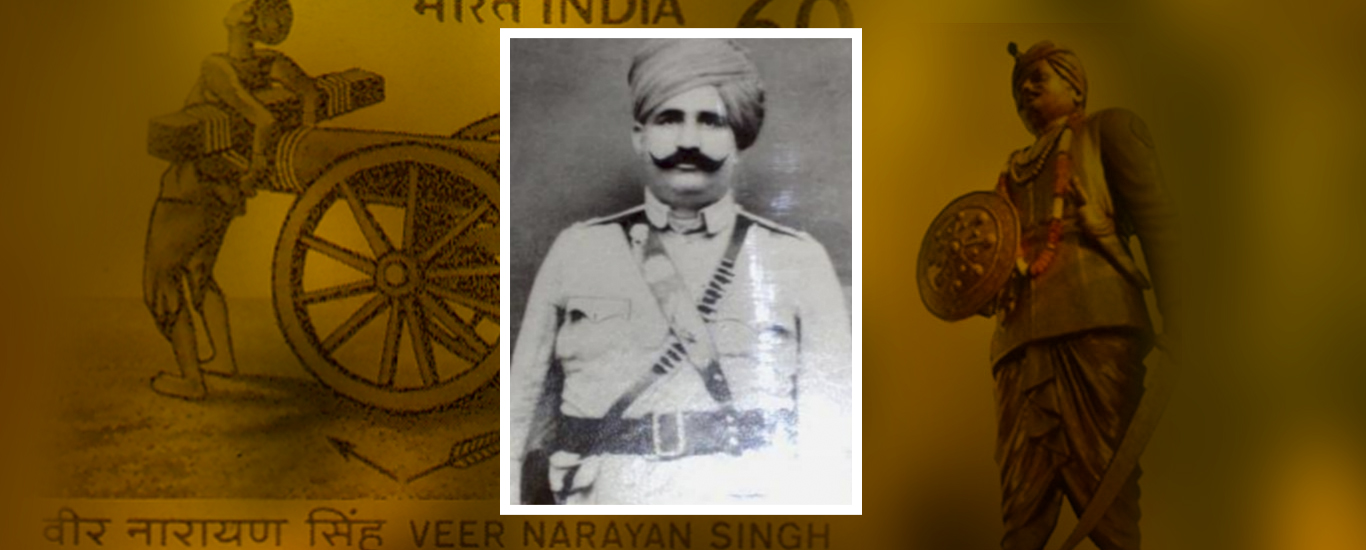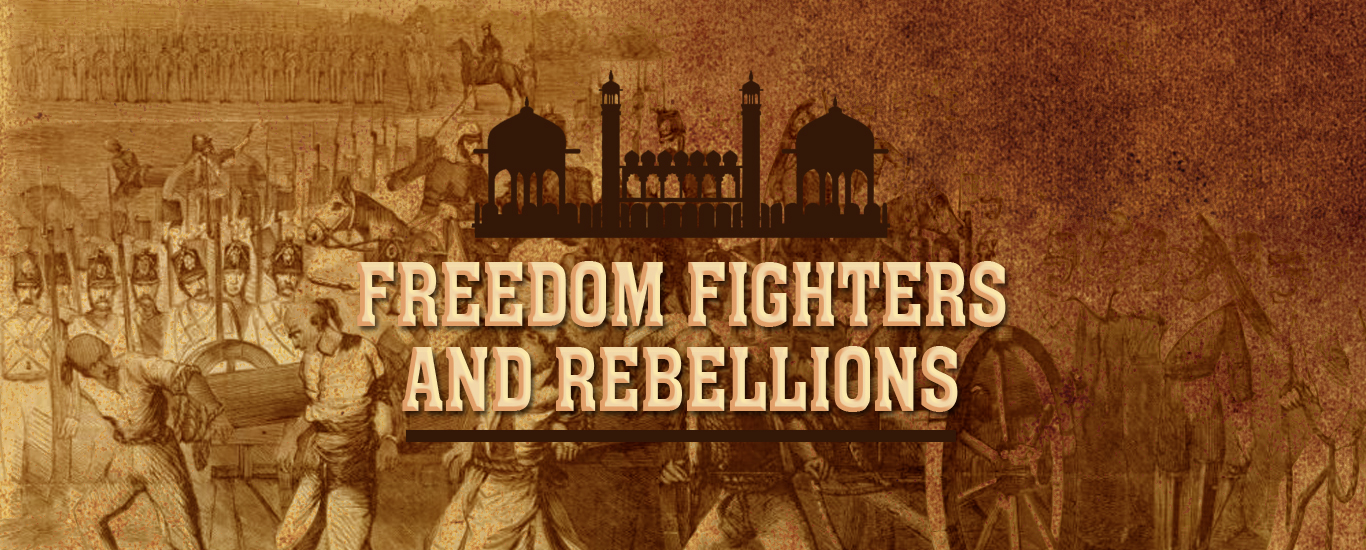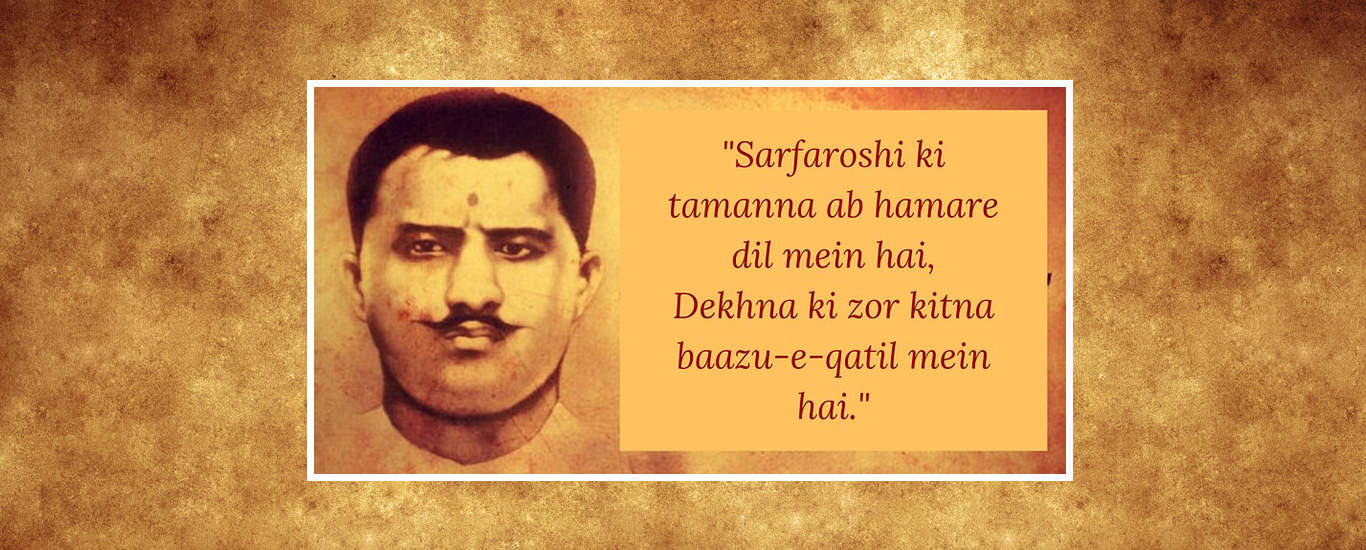KhudiRam Bose The Youngest revolutionary of Indian freedom fight history
It is us, the people of India who proudly celebrate our independence by breaking the steel chains of British rule. But aren’t we forgetting the people behind this bravery and courage? India acquired its independence on 15 August 1947 after almost 200 years under British rule, first under the East India Company and then straight under the British government.
To succeed in acquiring her Independence, India wanted the people to rage up and over the years, we have seen countless Indians fight for freedom from colonial rule. There were several people who stood against British rule, some of whom have mostly been forgotten by the pages of history. But how many do you know? There were so many freedom fighters whose tales of heroism have somehow gotten erased in the pages of history.
In a grand exhibition in Bengal that dealt with the injustice of British then-ruling India, amid the big crowd appeared a boy of 16 with a bundle of handbills. It carried slogans ‘Vande Mataram’ distributing them to the people. In addition, the true purpose of the British in putting up the exhibition was exposed. The various forms of British injustice were explained. Some of those who were loyal to the king of England opposed and tried to prevent the boy from distributing the handbills. Their eyes were red with anger. The boy unnoticed them casually went on distributing the handbills. Some people tried to seize him but he smartly escaped. At last, a policeman caught hold of the boy’s hand. He pulled out the bundle of handbills but to catch the boy was not so easy.
The people there burst into cries of yelling ‘Vande Mataram’ the police and those loyal to the king were filled with wonder and felt humiliated. Thereafter a case was filed against the boy but the court set him on the ground of his tender age. It was a teenager who first dropped a bomb from India against the heinous atrocities of the British Empire. Khudiram Bose was the one who went down to the battlefield of the revolution without lamenting the misfortune of the country.
The life and martyrdom of Khudiram are one of the most intense chapters in the freedom struggle of India. When Khudiram was hanged by the British on August 11, 1908, he was only 18 years old. Along with other freedom fighters, he played a pivotal role in the history of the country. Most people may not have read about him even in the textbooks. But even in the folk songs sung in Bengal, there is the story of Khudiram. The story of a young man who walked to the gallows with a small smile.
Birth of the Raging Fire
Khudiram was born on December 3, 1889, in Habibpur, Midnapore district of Bengal. He was the son of Triloknath Bose, a tehsildar, and Lakshmipriya Devi. He was the fourth child in a family of three daughters. While growing up, he faced several hardships. He was assisted by his sister Aparupa and her husband Amritlal as he lost his mother and father at the tender age of 6. When his brother-in-law got a job in Bihar, Khudiram went with him.
Those were the days of unrest among the people after the Partition of Bengal in 1905. It had affected Bihar as well. Slogans in the streets against British rule echoed in Khudiram’s mind. His mind was only filled with the thought of getting the country free from British rule. It was when he got to read the book of BankimChandra Chatterji named ‘Anandamath’. From then on he thought of sacrificing his life for his country. He got connected with revolutionary movements like Yugantar. Khudiram got trained in using weapons as he was adamant that he should take up arms against the British. Anti-British pamphlets were distributed wherever people gathered.
After a year, Khudiram actively took part in full-blown revolutionary activities, planting bombs near police stations and aiming at government officials.
It was known that Khudiram was a member of the Anushilan Samiti, a Bengali organisation that was functioning in the first quarter of the 20th century, putting forward revolutionary violence as a means to sweep the British out from India forever.
Amidst the British rule, the Samiti was conducted by nationalists like Aurobindo Ghosh, and his brother, Barindra Ghosh.
Khudiram was inspired by the sermons of Sister Nivedita and Aurobindo, who visited the villages also along with the classes of Satyendra Bose.
This young man was a pioneer in making bombs. The revolution began with the bombing of three police stations. He was excellent sportsmanship, good leadership and loving demeanor made Khudiram a favorite of the team. That is how he is given a crucial mission. It was to kill Magistrate Douglas H Kingsford of Muzaffarpur. Kingsford, the Calcutta Chief Presiding Magistrate, was notorious for his mistreatment and discrimination against Indians. Bhupendra Nath Dutta and other editors of Yugantar were sentenced to severe imprisonment by Kingsford.
Vande Mataram, edited by Aurobindo, has been charged with treason. During the trial, the youths who had gathered outside the court were tortured. Fifteen-year-old Sushilkumar, who questioned this, was ordered to be tied up and beaten by Kingsford.
The Secret Conspiracy
The Jugantar organization decided to eliminate him. This was not an easy mission to be done, and only a responsible assassin could be put to work. The majority in charge thought of carefully giving this task to Prafulla Kumar Chaki, and Khudiram Bose, who readily agreed. Khudiram Bose and Prafulla Kumar were responsible for the attack. They had two guns, bombs and so much money in their hands.
They both changed their names to Haren Sarkar and Dinesh Chandra Roy so that the two who reached Muzaffarpur would not be identified. They worked out to carry spy missions and learned about Kingsford’s routine, trying to find a loophole when will the attack be carried out.
Both of them stayed at the Dharamshala of Bihari zamindar, Parmeshwar Narayan Mahato, and got to work. It did not take so long to get a good idea of Kingsford’s everyday activities like timings at court, the European Station Club, and his house. On April 30, 1908, they were ambushed outside a European club in Muzaffarpur in the evening, Khudiram planned to bomb Kingsford.
That evening, Khudiram and Prafful jumped in front of a European club, pointing rifles at Kingsford’s vehicle and chanting slogans. An explosion took place and it was a great success! The carriage blew up and burst into flames due to the bombing. They both parted ways after completing the mission. But a dreadful thing happened. Kingsford was not actually in that vehicle, he was in another chariot. Barrister Pringle Kennedy’s wife and daughter were actually in that bombing. Both of the women in the carriage lost their lives in the attack, within hours of each other. But Khudiram was not aware of this.
During the night, the police went in search of those who were behind the incident. Those who provided information about the wrongdoers were promised a great deal. Khudiram’s journey was by road on foot for many kilometers as he was sure to be searched by the police at the railway stations. On the way, he went to a railway station to quench his thirst, but suddenly he came across two policemen. They had questioned the young man who came up exhausted and covered with dirt and dust. Meanwhile, two guns in Khudiram’s hand fell down. It did not take long for him to get arrested. Confined by the policemen and hence handcuffed, Khudiram was taken to Mr. Woodman the district magistrate.
Prafful Chakki shot himself in the head when he was about to be arrested by the police on the way.
Bose, along with two others, faced the panel, the trial was started on 21st May 1908. Many lawyers focused on Khudiram’s case, solely as they were affected with love towards the country.
Khudiram resubmitted his statement to the magistrate, opposing any charge for the attack on 23rd May. Even so, it would be in vain, as the judge would finally sentence him to death in the Muzaffarpur incident. They appealed but that did not matter. The judge was surprised to see Khudiram laughing despite hearing the verdict. Khudiram Bose smiled, while the verdict was being read out, provoking the judge to ask him whether he understood the full extent of his punishment. The impudent Bose answered that he not only had understood the verdict, he was also willing to teach the judge bomb-making if given the time when he was asked if he had anything to say.
On July 8th, the High Court hearing took place. With the Representation of Narendrakumar Basu, Khudiram challenged the verdict of the court. Basu had fought viciously. He brought in pertinent points, stressing the fact that Prafulla had shot himself, an indicator that perhaps he was the guilty one, throwing the bombs.
Lost the man who created history with his brave words
On July 13th 1908 the British judges declared the final verdict. The young boy’s appeal was dismissed, and the British judges fixed his conviction. The order was issued to undertake a death sentence before 11th August.
On August 11, 1908, the young warrior walked to the gallows with a small smile on his face and an unquenchable fire in his chest. This made millions of Indians open their eyes by the freedom struggle that closed their eyes forever.
Khudiram was hanged at the young age of 18. His death sparked fire among revolutionaries, who loaded honors upon him. Pitambar Das, the poet, wrote a song that echoed the love that Khudiram had for his motherland.
It’s too late to remember the sacrifice of an 18-year-old, who gave up his life for his motherland. These are never the people who should be forgotten or erased from history. Let us remember the ones who were instrumental in giving us the great nation we are in today.



